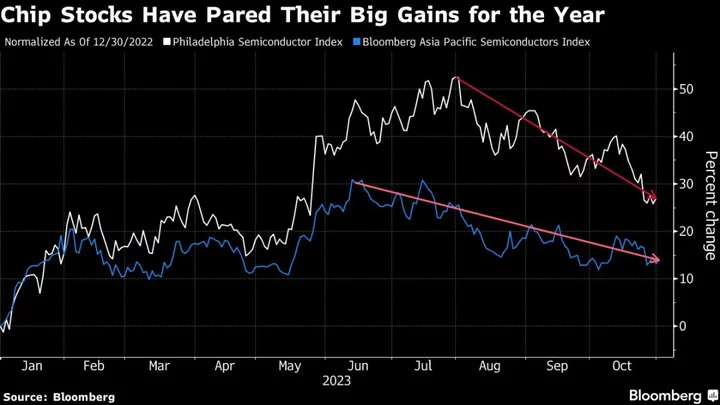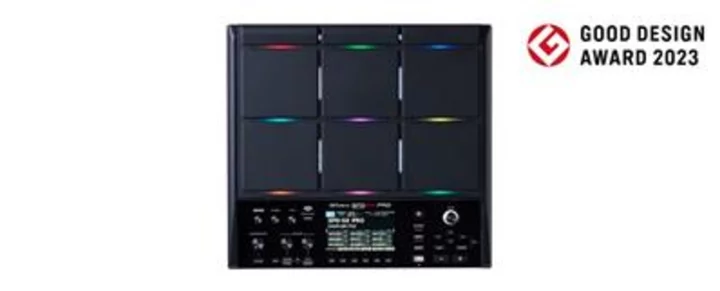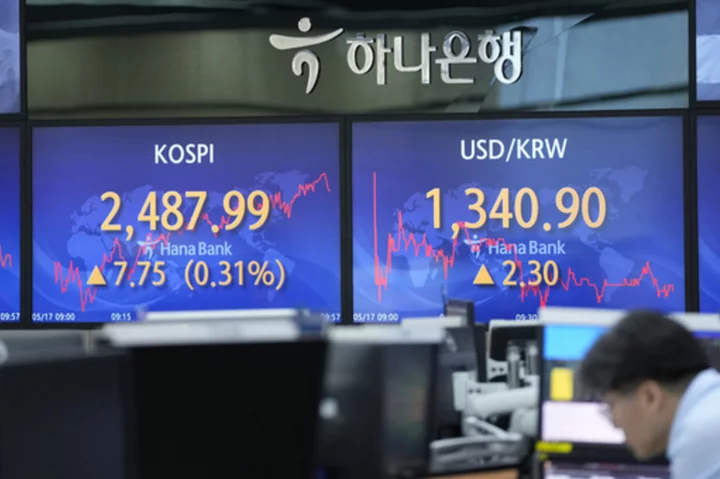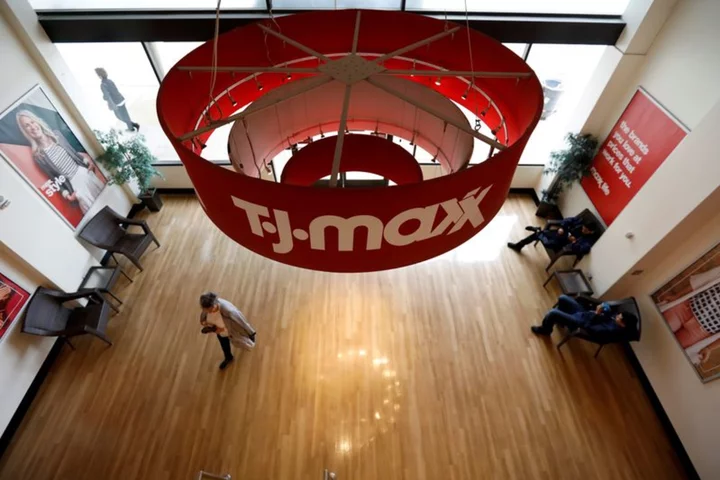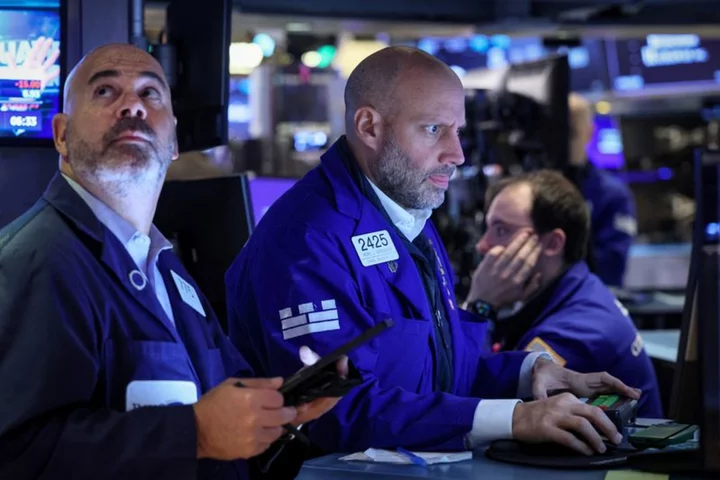Signs of recovery in smartphone and computer demand have yet to provide the next tailwind for chip stocks as they languish below the heights of this year’s artificial intelligence rally.
Earnings reports from Intel Corp. and Samsung Electronics Co. were optimistic, indicating the worst may be over for electronics end-markets. Taiwan Semiconductor Manufacturing Co. was similarly positive on demand for traditional chips while also providing further evidence that the boom in cutting-edge AI tech will continue.
But results have failed to spark renewed rallies in gauges of chip-related stocks. The Philadelphia Semiconductor Index is still up 30% this year after feverish AI-related buying, but that gain is roughly half of where it was at the summer peak.
Pundits cite fresh risks to global economies posed by potential expansion of the war in the Middle East along with ongoing concerns over the impact of elevated global interest rates and threat of recession. Tit-for-tat trade restrictions between the US and China provide extra uncertainty for the industry.
“As macroeconomic factors could shake up the markets, it has become tough for participants to muster up courage,” said Lee Seung-Woo, a Korea chip sector analyst at Eugene Investment & Securities. “Stock prices will move with high volatility between optimism and pessimism for a while.”
In its earnings call, Samsung said memory chip prices will rise in the current quarter, and overall demand will increase with further AI development. Still, not everyone is convinced it’s time to buy more shares of memory makers.
“It wasn’t bad overall,” Yoon Joonwon, a fund manager at DS Asset Management Co., said of Samsung’s results. “But in the end, nobody is certain if demand for mobile phones and PCs will improve next year,” he said, adding “we are not out of the woods.”
Even the AI trade has met with scepticism of late, with leader Nvidia Corp. trimming its gain for the year to less that 200%. Rival Advanced Micro Devices Inc. provided a weak sales forecast for the fourth quarter, though it also reported strong early orders for its new AI processor.
The good news is the recent pullback in sector stocks may have priced in some of the worry.
The SOX has underperformed since the start of the third quarter, but “worse performance vs the S&P 500 indicates a lower bar for expectations into the print,” and that could be positive for share prices, analysts at Susquehanna Financial wrote in a sector preview report last month.

